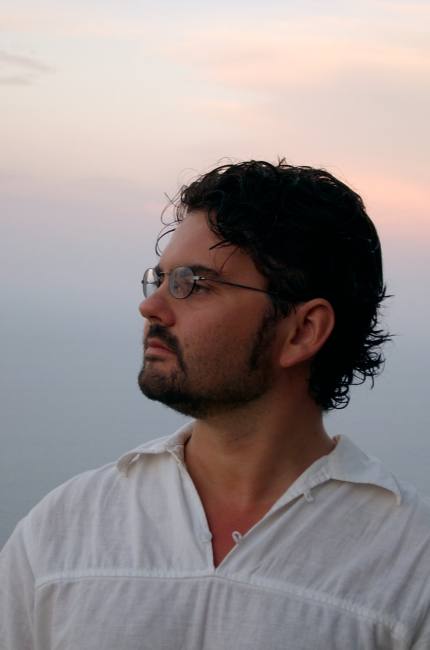RRDTool, the round-robin database tool, announced the release of RRDtool 1.3. The new release includes additional capabilities and functionalities, and it has been rewritten to make it more modular.
Tobias Oetiker, the author of many famous open source tools like RRDTool, MRTG and SmokePing holding a seat on GroundWork Open Source’s Project Lead Council, approaches software development from an hacker perspective: to scratch a personal itch.

Tobias Oetiker (on the right) by QFamily
Since I had issues to solve and did not find existing software to do it. Then because I use OSS almost exclusively in my work, I found it only fair to share the results of my work too. After all OSS only works when several parties throw their goods into the basket.
How all this started?
I wrote MRTG and SmokePing because I needed the functionality. So essentially I wrote them for myself. And since I like to see people enjoying using my tools, I put them out there. In the case of rrdtool, I did not need it directly, but based on the experience from writing MRTG I had a pretty clear vision as to what tool is missing from the system managers toolbox.
So the motivation for writing rrdtool was primarily drawn from the positive feedback I got from mrtg users. As it turned out, I had actually hit a nerve with all three of my tools since they all got pretty good use across the net.
For most of the time while developing the tools I have been working for ETH Zurich and did the tool work mostly in my spare time. Since I had a fixed income from the University I did not explore commercial opportunities.
Originally economic incentives weren’t the cause behind such code developments.
What about the economic incentives, today?
I found that publishing software as OSS has the nice effect of triggering more feedback than in a closed environment and also draws contributions every now and then which is a very nice plus the economic value is in me being known quite well for my work which makes it very easy getting contracts, because people assume I know stuff, which is not entirely a wrong assumption <smile>.
There are also direct benefits, in the sense that some companies contract me to develop additional features for the OSS packages. I always draw up the contracts such that I can include the results back into the mainline. Most of smokePing extensions have been created in this way.
Tobias was the typical hacker described by researches interested in understanding motivations (intrisic motivations). Later Tobias was also also motivated by financial rewards (extrinsic motivations), coming from selling consulting services on his products, and he eventually ended open his own company.
Which are your source of revenues, besides consulting?
Well I am trying this with the sponsorship approach, the idea is that companies that profit from the products become a sponsor who just gives money to encourage the future development of the product. I use this money to pay for maintaining the products and developing some additions which are not covered by some other contract, just because I think they are necessary a further source of income is google ads which works quite well due to the high traffic on the website.
Which are the advantages for your customers? And for you?
The big advantage of this approach is that the customers normally have a clear vision of which problem they want to solve, and since I know the tool well I can integrate an optimal solution which will continue to evolve even after the contract ends, since the extension is now part of the product.
This leads to a forth motivation to do it all. Being the author of these well known tools gives me a certain standing in the industry, which comes in handy when bidding for contracts, since customer assume (rightly) that I know stuff and I am able to finish projects.
Our biggest contract last year had nothing to do with any of the tools but the customer asked us only because he had seen my name mentioned in connection with monitoring.
Tobias creates tools in a way that users can get along without needing any extra support contract. The software is enriched as part of their service offerings, and as time goes by they enhance their toolbox. They do not sell tools, but the stuff they make the tools for.
Oetiker + Partner AG is a pure IT service company, for some probably the highest form of open source firm.
Happy hacking Tobias!
About RRDtool
RRDtool is a freely (as in freedom and in beer) available software tool for the collection and graphical display of time series data and is deployed to monitor computer networks and network traffic. Installed at hundred thousands of sites world wide, RRDtool monitors everything from small local networks to large IT infrastructures of internationally operating telecom providers. RRDtool is included in the family of Open Source tools developed by Tobias Oetiker, which also includes MRTG, and SmokePing, which is used for the measurement and display of line quality parameters in Internet connections. For more information about MRTG, RRDtool and SmokePing visit: http://oss.oetiker.ch
Technorati Tags: TobiasOetiker, Open Source Monitoring, Network Management, GroundWork, RRDTools, MRTG, smokeping, motivations


 Barbie made in Brazil by
Barbie made in Brazil by  We fund organized Crime by
We fund organized Crime by  Invitation by
Invitation by  Luca Passani
Luca Passani Managing human resources by
Managing human resources by
Reply